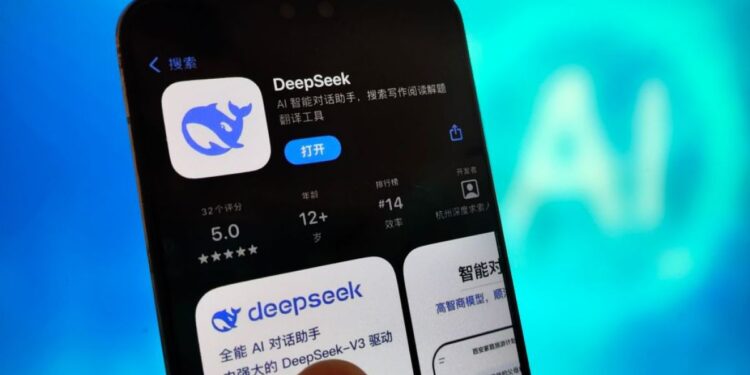The archaeological of 500 people in the world, led by Jinsen Huang, the co -founder of Invidia, lost a total of 108 billion dollars yesterday, Monday, as the intensive sales of the shares of technology companies affected by the emergence of the new Chinese “Deep Sick” company, competing in the field of artificial intelligence, led to a decrease in indicators The main stocks, according to Bloomberg.
The billionaires whose wealth was associated with artificial intelligence were the biggest losers:
- Huang’s wealth fell $ 20.1 billion, decreasing by 20%.
- Larry Ellison, co -founder of “Oracle Group”, lost $ 22.6 billion, and represented 12% of his wealth, according to the Bloomberg Billionaires.
- Michael Del, the founder of “Dell”, lost $ 13 billion of his wealth.
- Zhang Ping Chau, co -founder of “Bings”, lost $ 12.1 billion.
The major technology companies combined lost 94 billion dollars, the NASDAC index fell yesterday by 3.1%, and the Standard & Poor’s 500 index decreased by 1.5%.
Deep Sik, based in Hangzhou, has been developing artificial intelligence models since 2023, but the company has first appeared on the radar of many Western investors this week after it has released the free chat application “Deepseek R1). All over the world.
The number of new users increased to the extent that Deep Seck has struggled to keep the application online, suffered from service interruption, and was forced to restrict user registration from China.
According to Bloomberg, the entry of Deep Seck – who says it cost only 5.6 million dollars to develop it – to the artificial intelligence race as a challenge to the Silicon Valley’s novel that huge capitalist spending is necessary to develop the strongest technology models that are witnessing global momentum.
This was a heavy blow to billionaires whose wealth was associated with the series of supplying Western artificial intelligence, which was the largest engine of the stock market over the past two years, according to Bloomberg.
A similar approach
The high assessments of what became called giant artificial intelligence companies, including Meta and Albatit (royalized by Google) and Microsoft, have attracted billions of dollars from wealth to their owners since Oben AI revealed the “Chatgpt” application in November /November 2022, and these companies have mostly worked according to an approach characterized by spending huge sums to develop and operate artificial intelligence systems by storing high -quality semiconductors and energy supplies needed to operate them.
Mita CEO Mark Zuckerberg announced last Friday that the company plans to spend between 60 and 65 billion dollars on artificial intelligence projects this year, which exceeds the estimates of investors in Wall Street.
According to the Bloomberg Research report, capitalist spending across all major technology companies is on its way to reaching 200 billion dollars in 2025.
Despite the limited revenues that have been achieved from all their investments so far, the markets have rewarded the shares of American technology with high standards, which in turn led to historical gains in the wealth of their owners.
Invidia has emerged as the largest winner of the boom of artificial intelligence so far after the net of Huang’s wealth increased by about 8 times to 121 billion dollars from the beginning of 2023 until last Friday, and Zuckerberg’s wealth increased by 385% to 229 billion dollars during the same period, and the wealth of Jeff increased Pesus from Amazon, at 133% to $ 254 billion, according to Bloomberg.
Capital spending
The fact that “Deep Seick” was able to develop a free model that competes or surpasses competitors, including “Chat GBT” and “Ankarubik”, for a small part of the cost of development, investors to question the logic behind the approval of the Silicon Valley On capital spending.
According to Bloomberg, the main reason for Deep Seck’s lack of dependence on large investment and advanced chips to develop their model is that Chinese companies had limited access to strong graphics processing units, or graphics processing units, on which most Western companies have relied on since the US government imposed strict export controls On the most advanced chips.
In an interview with “CNBC” last week, Alexander Wang, CEO of the Skal AI training provider, said that despite the US export controls, it is likely that Deep Cick and other Chinese developers have more graphics processing units than you know Silicon Valley.
“Chinese laboratories have a number of H1 100 graphics processing units than people think … I think Deep CII has about 50 thousand H100 units, which they cannot talk about,” Wang said, referring to the advanced artificial intelligence segment of Invidia. . It contradicts the export controls imposed by the United States.



